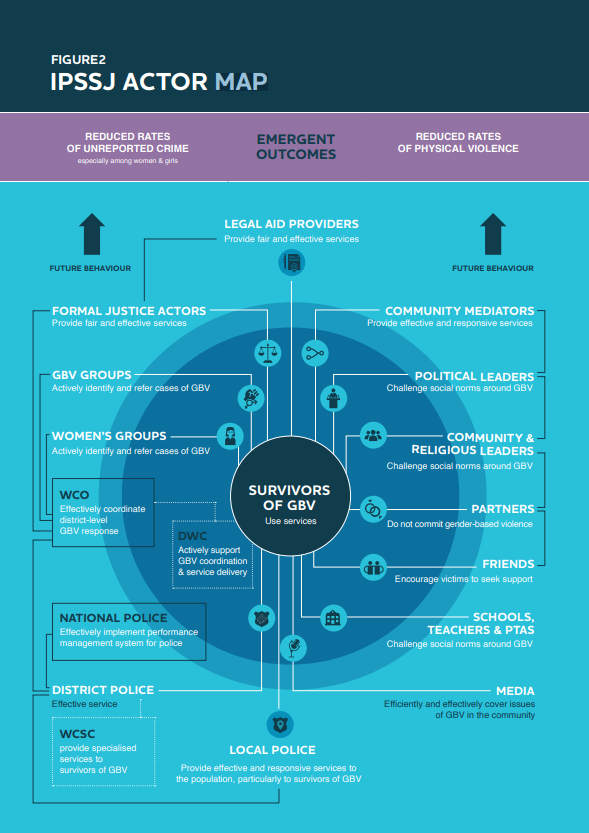Case Study: Evaluation of the IPSSJ programme in Nepal
From Actors to Outcomes:
Operationalising Complexity in IPSSJ
The Integrated Programme for Strengthening Security and Justice (IPSSJ) aimed to improve security and access to justice, particularly for traditionally excluded people, across Nepal.
The IPSSJ evaluation applied the ABC Framework to develop an integrated programme theory of change. The evaluation team facilitated workshops with IPSSJ implementers, managers, and the funding agency FCDO to map out the actors, behaviors, and capabilities, opportunities and motivations driving behaviors.




Applying the ABC Framework, the evaluation developed causal impact pathways for each major actor group targeted by IPSSJ interventions. These included communities, police, community mediators, media, GBV watch groups, GBV perpetrators, and staff of women's centres. The causal pathways articulated how reaching these actors with IPSSJ activities would lead to changes in their capacity, opportunity, and motivation, ultimately resulting in behaviour change.
The ABC Framework enabled the evaluation to develop a robust theory of change that captured the complexity of the program context in Nepal and the multiple actors involved. The theory of change was iteratively adapted over time based on emerging evidence from implementation and evaluation studies.
The ABC Framework provided a pragmatic approach for the IPSSJ evaluation to develop, adapt and operationalise the program theory of change. It supported developing a complex theory of change deeply rooted in the program context, actors and behaviours, while maintaining clear causal logic models linking activities to outcomes.
